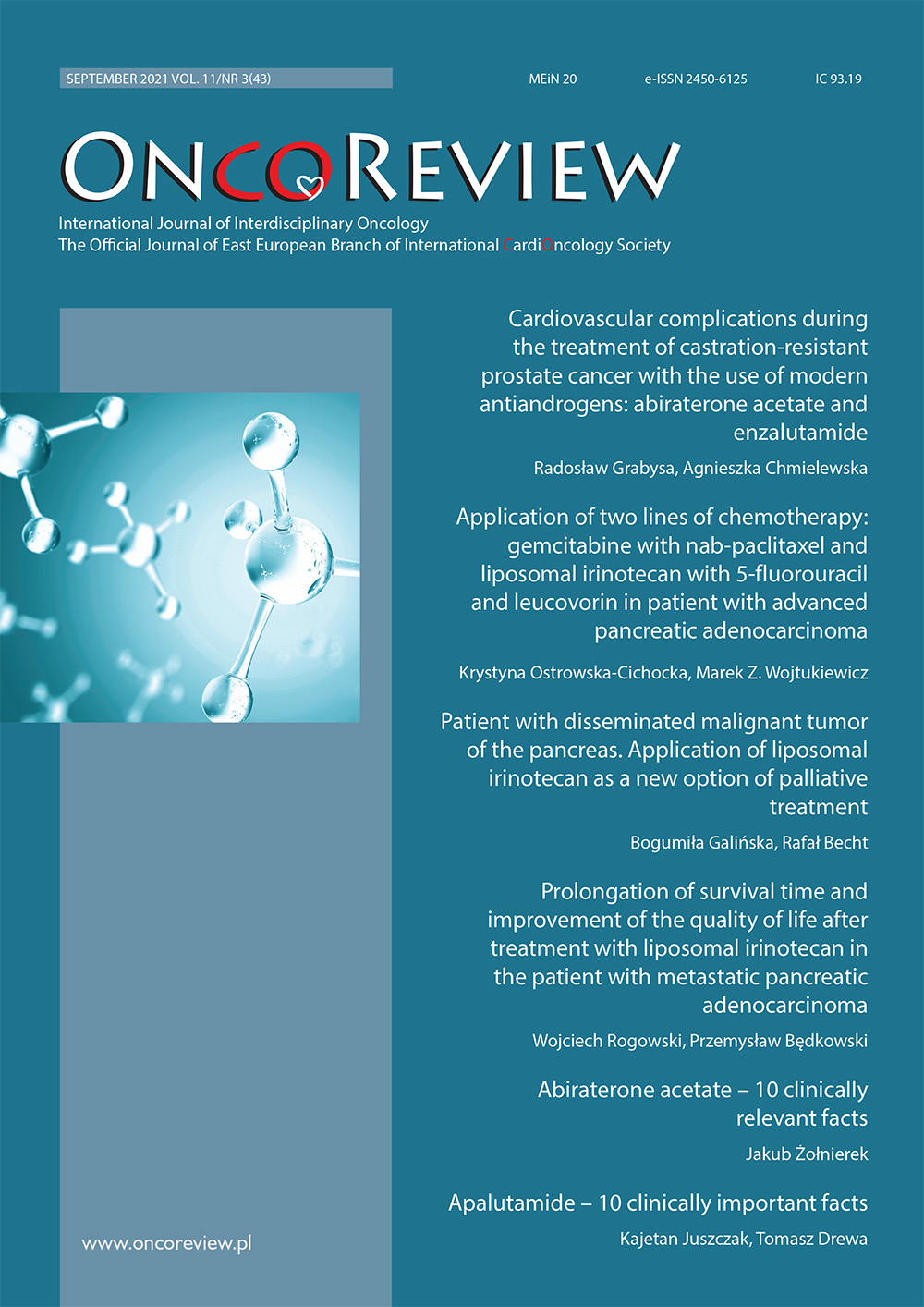Dear Readers,
several randomized clinical trials have shown that abiraterone and enzalutamide, two androgen receptor targeted drugs, increase survival and improve quality of life in men with metastatic castration resistant prostate cancer (mCRPC). Unfortunately, the use of these drugs significantly increased cardiotoxicity and the risk of hypertension, which further worsens the prognosis in this male population. In the articles that I recommend to you today we present the current position of abiraterone and enzalutamide in mCRPC therapy along with the mechanisms responsible for their cardiotoxic effects. I would like to draw your attention to the practical algorithm for the control of risk factors in the population of men with mCRPC treated with modern antiandrogens, which is presented in the first of the papers published in the new issue of our magazine.
Patients with metastatic pancreatic ductal adenocarcinoma (mPDAC) have a poor prognosis. Liposomal irinotecan (nal-IRI) has been developed with the aim of maximising anti-tumour efficacy while minimising drug-related toxicities compared with the conventional (non-liposomal) formulation of this topoisomerase 1 inhibitor. In combination with 5-fluorouracil and leucovorin (5-FU/LV), nal-IRI is the first agent to be specifically approved for use in patients with mPDAC who have progressed following gemcitabine-based therapy. In the pivotal, phase III NAPOLI-1 trial, intravenous administration of nal-IRI + 5-FU/LV to gemcitabine-pretreated patients with mPDAC was associated with a significant ≈ 2-month median overall survival advantage compared with 5-FU/LV alone. In the current issue of “OncoReview”, we present three clinical cases that concern the practical application of liposomal irinotecan in this difficult and demanding group of patients.
As always, I wish you an informative and inspiring reading,
EDITOR-IN-CHIEF (Europe)
Radosław Grabysa, MD, PhD, Associate Professor
Opublikowane: 2021-09-30

